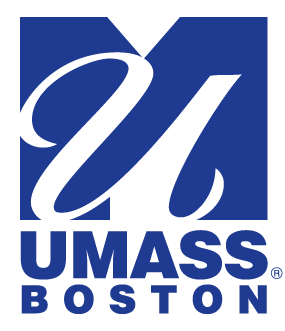Month 3: “Done Too Much” – The Job Eclipses the Project
Categories:
Month 3 (September 15-October 15) saw the growth of the IMC Production and Video News efforts that I began in the previous month. Together with other volunteers I recruited, we covered five on-location events where we recorded interviews, filmed, and took notes to share with other community journalists. We finished video previews/announcements about a local campaign to end truancy and a city Unity March that brought 150 people from different backgrounds together to support the local poor and to participate in county government. We also attended a reception for artists and art-buyers, a beer and chili festival, and a panel discussion on the challenges faced by African-American male youth. Our reputation grew as a voice of the people, and I used the opportunity to train another 15 volunteers on video editing, field audio recording, and radio broadcast.
Back at the IMC, I helped update the IMC web site by replacing old documents and language, and calling Web group meetings. I really did not do much else on the web site, though, and real credit is due to VISTA leader Josh King, who fully upgraded the site to the latest version of Drupal and also redesigned it to be more striking, effective, and bug-free. Trying to focus more on the a/v media projects at the IMC, I organized a group of Music Library volunteers to update the WRFU automation system, adding new PSAs, station IDs, and local music, and getting this database ready for publishing on our site. I continue to work with WRFU to make sure that its members can consistently produce new content for the station, and Production room maintenance and improvements are a slow part of reaching that goal. By the way, I’ll point VISTAs to ZaraRadio and SHOUTcast as good tools for community broadcast.
For several weekends, I organized volunteers in the IMC Shows group to raise funds for the IMC by sponsoring some concerts during the Pygmalion Music Festival. We packed up, set up, and tore down our PA about seven times in three or four different venues, but we got to assist and listen to some great music by local and non-local performers while getting out into the campus and raising some money for ourselves and area businesses. We played loud rock music in the middle of a clothing store – and then in a vegan restaurant, which was incidentally voted the best venue in the festival. We got to stand on stage in front of Dan Deacon when that very stage collapsed under the weight of his wild, raving audience and we worried that our speakers might not make it out alive. We were exhausted by the end of those shows and I still haven’t received our check to give to the IMC for the time, labor, and equipment.
Looming in the background of all these activities was a growing body of direct service that I was doing back at the IMC. During both September and October, I was responsible for calling meetings, taking notes, and facilitating the weekly operations of at least two IMC working groups – Shows and Production – and was often doing the same for other groups. It was ultimately the Shows group that began requiring too much from me and relying too much upon me. Since August I had been the only person administering the events/concerts calendar, responding to booking requests, reviewing contracts, and even running live sound and security at shows. Earlier this month I realized that no one else was volunteering to do these things, and that I could no longer do so, either. The more often people who came into the building associated me with the shows, the more they would come to me and write to me – instead of the group – for their requests, both big and small, while the other members of the group stopped showing up, or when they did show up, made such a mess of things technically and figuratively that I had to fix things or respond to angry “customers.” It was annoying on one level and aggravating on another, especially because it prevented me from focusing on developing media training curriculum and building community teams. As recently as one week ago, I found it harder to get project goals done at work than I did at home, because I was distracted by requests unrelated to my position, and I found it to be a very different and more negative interaction with the public than our video news outings.
Perhaps it was merely the long summer-like weather that kept everyone active and busy through the end of September and beginning of October – so busy that I found myself taking on the tasks of other volunteers at the IMC, which seriously cut into my VISTA project work. Overall, it was a good month if for no other reason than I learned a valuable lesson and communicated my frustration with my organization in a way that was well received and constructive.
The problem stems from an admirable philosophical commitment to volunteering at the IMC. There is hardly staff, decisions are made in consensus, and groups organize themselves around common goals and skills. So, what happens when a non-profit with no staff suddenly gets “staff” members (two VISTAs)? The new staff are asked to do everything from answer visitor requests in the office, to file leases and contracts and burn bulk copies of DVDs – because we’re there and no one else is, since everyone else is just a volunteer and shows up when they feel like doing so. Nevermind that we are also volunteers, that we are not being paid employee wages, and that we have specific long-term projects that ought to take up a major portion of our time.
None of this is really the fault of the IMC, but has more to do with group dynamics and my offering up too many of my services. Ultimately, I noticed this well enough in advance, and had the support of people like Josh and Nicole, to address the issues before they became too difficult to manage. I imagine that other VISTAs have had similar experiences in their organizations; do not be afraid to politely but firmly tell people what your job is and what it is not, especially when they are unloading a lot of their tasks, hopes, and expectations onto you.











